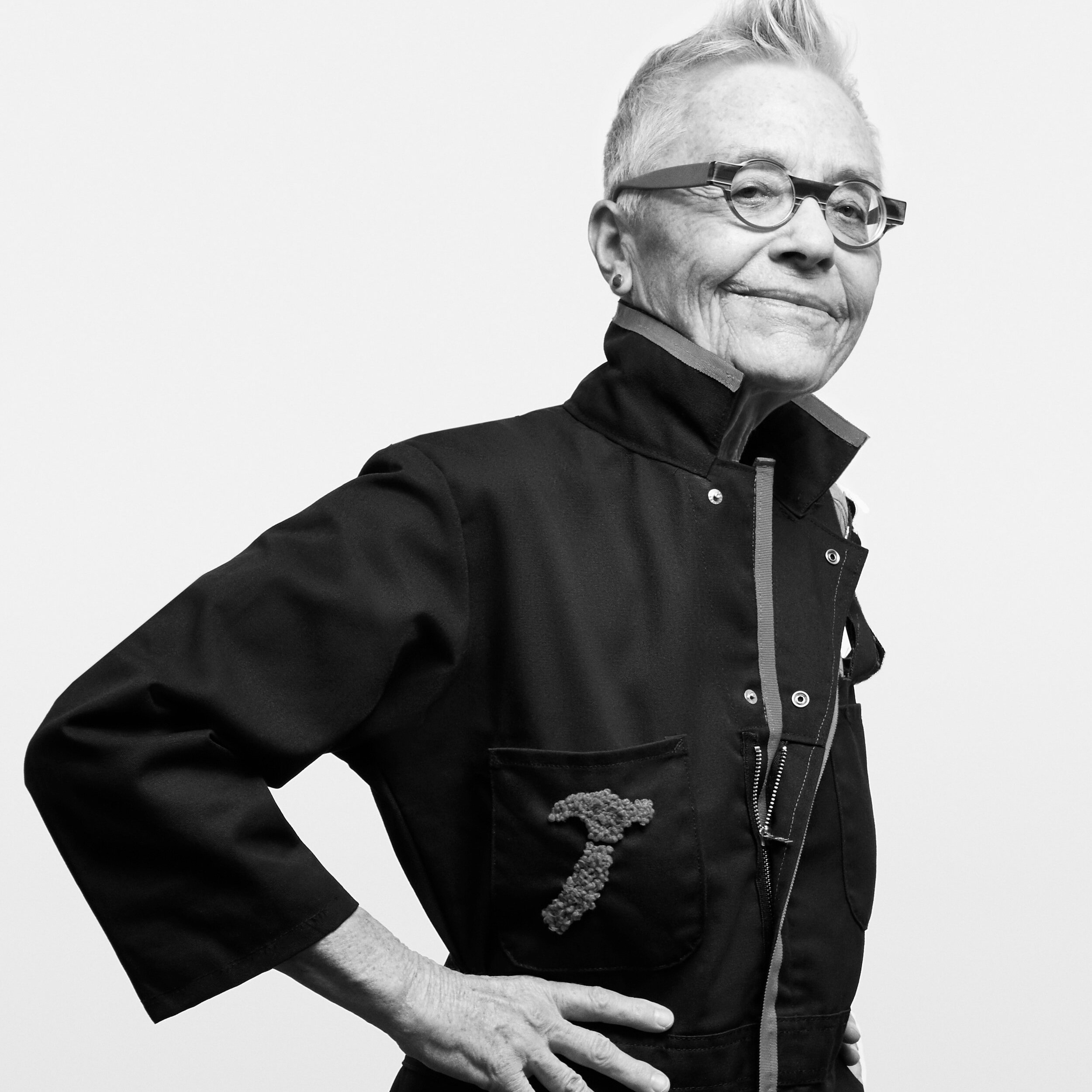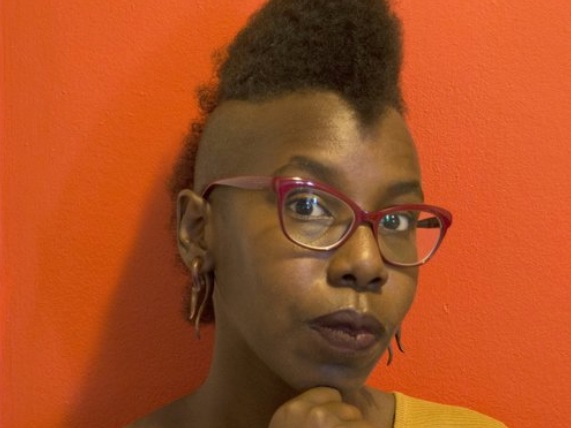The Barbara Hammer Lesbian Experimental Filmmaking Grant is an annual grant that will be awarded to lesbians for making visionary moving-image art.
“It has been the goal of my life to put a lesbian lifestyle on the screen. Why? Because when I started I couldn’t find any! ...I picked up a camera in the 60s, late 60s, made Super 8, 8mm, finally went to school and got a 16mm camera. Made 13 films in two and a half years. All experimental. Because I think that as a lesbian at that time I was living an experimental lifestyle. Well let’s just say, I was experimenting. And I still am. And I think that lesbian film really calls out for experimental work. ...Working as a lesbian filmmaker in the 70s wasn’t easy in the social structure — the educational institution that I was in. It was difficult. And I want this grant to make it easier for lesbians of today. So you can make work that you want to make.”
— Barbara Hammer
ABOUT
The Barbara Hammer Lesbian Experimental Filmmaking Grant is an annual grant awarded to lesbians for making visionary moving-image art. Work can be experimental animation, experimental documentary, experimental narrative, cross-genre, or solely experimental. Applicants must be based in the U.S. This grant was established by Hammer in 2017 to give needed support to moving-image art made by lesbians. The grant is supported directly by funds provided by Hammer’s estate and administered through Queer|Art by lesbians for lesbians, with a rotating panel of judges. The grant includes an award of $5,000, and a series of individual studio visits with QA staff members and the grant’s judges. This year’s judges include A.K. Burns, Ela Troyano, and Cheryl Dunye.
Applications for the Barbara Hammer Lesbian Experimental Filmmaking Grant are open from March 31st, 2025–July 2nd, 2025. For questions, read our frequently asked questions, or email Communications Manager, Andrius Alvarez-Backus, at andrius@queer-art.org
APPLY
APPLICATIONS OPEN - MARCH 31, 2025
COMPLETE APPLICATION - JULY 2, 2025
What information does the application require?
Contact info, narrative bio, and headshot
Synopsis of project and strategy for exhibition
Budget
Work samples (2 samples, no more than 7-10 minutes total)
2 professional references
CV
What is required in the synopsis and budget?
Synopsis:
Description of the project and the process by which it will be made. (Up to 300 words) *Required
What is your timeline for completing the work and strategy for its exhibition? (Up to 125 words) * Required
Are there any additional aspects of this work you would like the panel to be aware of? (Up to 125 words) *Not required
Budget (one page, uploaded as PDF):
Your budget should account for how the work will be made (you do not need to include presentation costs). If the cost of production exceeds the grant amount, please indicate within the budget any confirmed funding you have received or additional funding you anticipate that will enable you to complete this project.
There is a $6 application fee*
Queer|Art uses the online application software SlideRoom to organize applications. SlideRoom charges applicants for the Barbara Hammer Lesbian Experimental Filmmaking Grant a fee of $6 for each individual application. The fee does not profit Queer|Art.
2025 HAMMER GRANT JUDGES
A.K. Burns is an interdisciplinary artist and associate professor in the Department of Art at Hunter College, City University of New York. Using video, installation, sculpture, drawing, and collaboration and working at the nexus of language and materiality, she/they trouble systems that assign value and explore their sociopolitical embodiment. Burns has exhibited internationally, including at 2018’s FRONT International, Cleveland, Ohio; the Harvard Art Museums, Cambridge, Massachusetts; Institute of Contemporary Art, University of Pennsylvania, Philadelphia; Julia Stoschek Foundation, Dusseldorf, Germany; MMK Museum of Modern Art, Frankfurt am Main, Germany; New Museum, New York; Palais de Tokyo, Paris; the Portland Institute for Contemporary Art, Portland, Oregon; and the Wexner Center for the Arts, Columbus, Ohio. She/they was a founding member of W.A.G.E. (Working Artists in the Greater Economy), a nonprofit artists’ advocacy group. Community Action Center (2010), a video made in collaboration with A.L. Steiner, which re-imagines pornographic cinema for queer womxn, and trans and nonbinary bodies, has screened internationally, including the Tate, London; and the Museum of Modern Art, New York. Burns is a 2023 Berlin Prize Fellow at the American Academy in Berlin; a 2021 Guggenheim Fellow; a 2016 Radcliffe Fellow at Harvard University, Cambridge, Massachusetts; and a 2015 Creative Capital Foundation Visual Arts Award Recipient.
Cheryl Dunye is a Liberian-American director, producer, and writer who emerged as part of the "queer new wave"of young filmmakers of the 1990s. She has made over 15 films, including MOMMY IS COMING, THE OWLS, MY BABY’S DADDY, and HBO’s STRANGER INSIDE, which garnered her an Independent Spirit award nomination for best director. Her feature film, THE WATERMELON WOMAN (1996), won the Teddy Award for Best Feature at the 1996 Berlin International Film Festival and was recently restored by Outfest’s UCLA Legacy Project for the film’s 20th anniversary. In 2015, Dunye’s multi-award-winning short film, BLACK IS BLUE (2014), was named one of the top five “Must See Feminist Films” by IndieWire. Dunye has directed many episodic series, including Ava Duvernay’s Queen Sugar, Dear White People, Bridgerton, and Lovecraft Country, for which her “Strange Case” episode received a 52nd NAACP Image Award nomination for Outstanding Directing in a Drama Series and has been named one of the best episodes in 2020 by The Hollywood Reporter and Entertainment Tonight. In 2018, she launched her Oakland-based production company called JINGLETOWN FILMS, which is actively developing — THE GILDA STORIES, an adaptation of the beloved 1991 queer vampire novel by Jewelle Gomez, and the feature-length version of her award-winning short, BLACK IS BLUE.
Ela Troyano is an interdisciplinary filmmaker, born in Cuba and based in New York City. Her projects bring together different aesthetic histories and genres: downtown New York avant-garde film and performance, queer cinema, Cuban-American cinema-in-exile and Latina film and video. Troyano's work explores the connections between performance and film through the lens of guerrilla practice: camouflage and insurrection conceptually shape both the form and content of her work. Her performance based projects blur the line between installation and live action, while her experimental filmmaking troubles the traditional relationships of documentation and distribution.
ABOUT BARBARA HAMMER
Barbara Hammer (1939-2019) began making films in the 1970s. She is most well-known for making the first explicit lesbian film in 1974, Dyketactics, and for her trilogy of documentary film essays on queer history: Nitrate Kisses (1992), Tender Fictions (1995), and History Lessons (2000). Her cinema is multi-leveled and engages audiences viscerally and intellectually with the goal of activating them to make social change, often through an exploration of the materiality of the filmmaking process and its relationship to the body’s potential as subject, form, author, and screen. She has been honored with seven retrospectives, including a forthcoming exhibition later this year at the Wexner Center for the Arts in Columbus, Ohio. Previous retrospectives took place at The Museum of Modern Art in New York City, Tate Modern in London, Jeu de Paume in Paris, the Toronto International Film Festival, Kunsthalle Oslo in Norway, and The Leslie Lohman Museum of Gay and Lesbian Art in New York City. Her book Hammer! Making Movies Out of Sex and Life was published in 2010 by The Feminist Press at The City University of New York.












